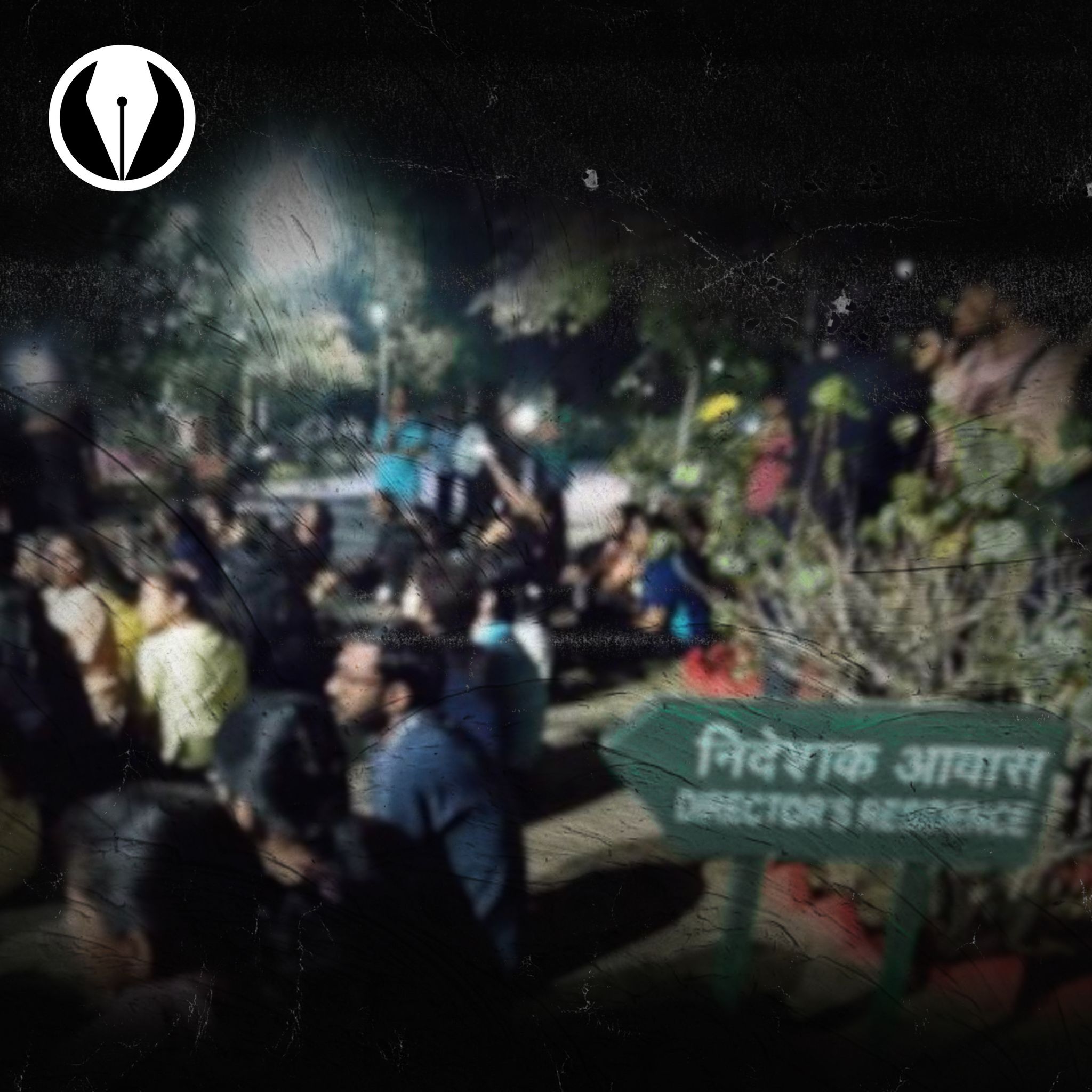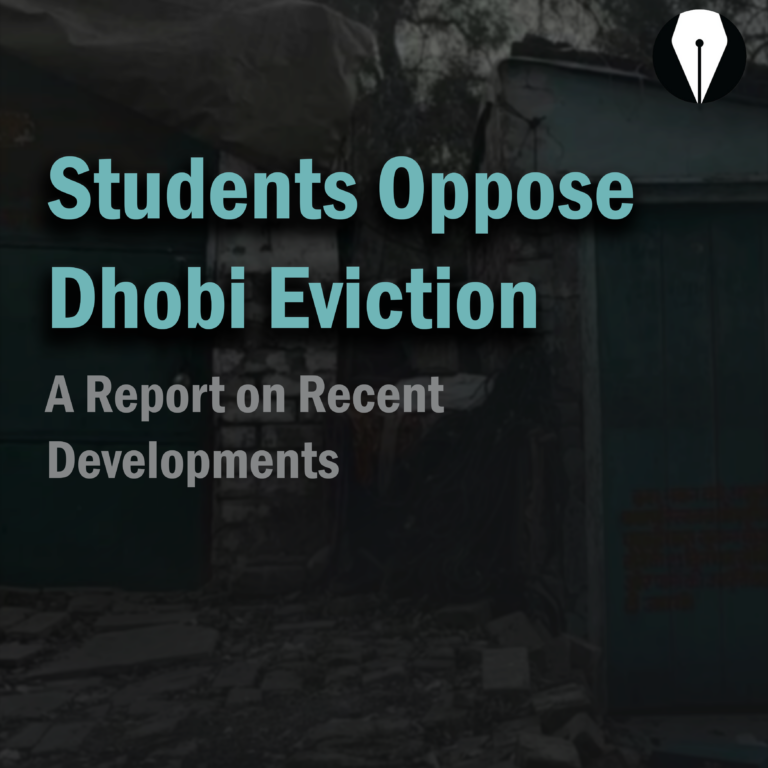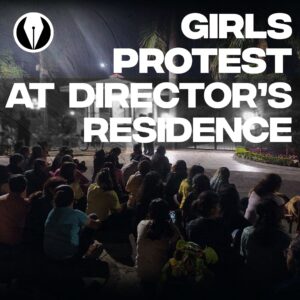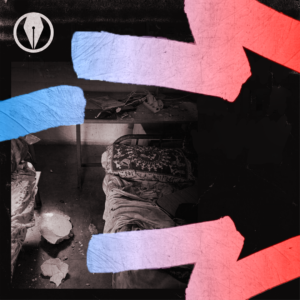Last week, Vox reported student protests(here) against the construction of a new residential block in GH-1 and hall 4 amidst growing concerns about the student’s well-being, academic productivity, and lack of communication from the authorities. The residents had raised several problems, such as excessive noise and dust, loss of sports facilities, impact on green areas and open spaces, and a need for a corresponding increase in facilities. Above all, students were infuriated that the decision was undemocratic, i.e., students were not formally consulted for this construction.
After the assurance by the director on April 2, the residents of GH-1 received an email from the hall warden mentioning details of the open house. Therefore on the evening of April 4, an open house was organized by a panel consisting of the Dean of Infrastructure and Planning(DoIP), Associate Dean, Physical Infrastructure(ADPI), Associate Dean, Hostel Affairs(ADHA), Dean of Student Affairs(DoSA) and the Deputy Director(DD) to convey the authorities’ point of view and answer the concerns of GH-1 and Hall-4 residents. The open house consisted of two sections: – a presentation by the authorities followed by a Q&A session.
In the presentation to the students, the ADPI described the situation of the hostel crunch in detail and presented the authorities’ stance on the issue. He informed that a single block would be constructed in both halls combined. One-half of the block will be constructed in place of the basketball and badminton courts in GH-1, and the other half will be built in place of the volleyball court in Hall-4, eventually providing accommodation for 224 girls in total. The block is expected to be ready in 4 months. He stated that the construction must occur in GH-1 and Hall-4 at any cost to adjust for the increase in the number of girl students as the Y23 batch arrives. He added that the consequence of not building a block in the girls’ hostel is a severe crunch for girls in the next three years, or some students might have to look for accommodation outside the campus.
The authorities also pointed out that the DoIP office is already working on long-term solutions to the crunch: the construction of Hall 14, Hall 15, and Hall 16. But as the number of undergraduate girl students is increasing every year, the DoIP office had to look for a short-term solution due to the shortage of time. The construction of a new block takes place much faster than the construction of a completely new hostel due to far less paperwork and the use of new technology for construction.
Later the authorities gave a point-by-point reply to the concerns of GH-1 and Hall-4 residents. One, the sports facilities will be reconstructed within the respective halls at different places. Two, to address the issues of excessive noise and dust, health, and ventilation, the authorities agreed to relocate the affected students. Three, to address the security issue, the construction area would be completely isolated from the residential blocks, and hence there would be no movement of workers inside the hall. Moreover, construction will take place in two shifts, i.e., for 16 hours every day. Four, the expansion of complementary facilities like the mess, cycle stands, et cetera will take place. Five, according to the authorities, they had kept a democratic spirit as all the official processes for the construction were followed, and no systemic lapse occurred from their end. They stated that there is no official protocol to inform the hall residents about any construction taking place in their hall.
In the Q&A session, when the GBM questioned the authorities about the lapses in communication from their side regarding the construction time and the meetings, the authorities agreed that there was a miscommunication and promised no further miscommunication. They asked the GBM to appoint a 3-member committee from both GH-1 and Hall-4, who will be the point of contact between the GBM and the authorities. This committee would meet the authorities weekly to discuss the residents’ concerns, and the relocation logistics and increase the transparency of the decisions the authorities are making about the construction.
After the open house, the construction resumed in both the hostels. However, it is important to note that these incidents aren’t isolated. Residential infrastructure crunch is constantly causing huge issues to the campus residents daily. To know more about the crunch (problems, solutions, institute’s plan) stay tuned!
Written By: Aarish Khan, Gauravi Chandak, Mutasim Khan
Edited By: Bhavya Sikarwar, Sanika Gumaste
Design credits: Deekshansh Vardhan











